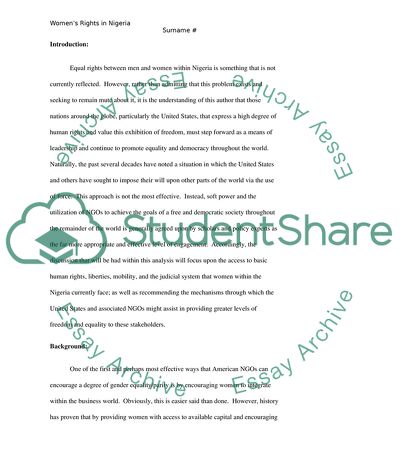Cite this document
(Womens Rights in Nigeria Essay Example | Topics and Well Written Essays - 3500 words, n.d.)
Womens Rights in Nigeria Essay Example | Topics and Well Written Essays - 3500 words. https://studentshare.org/social-science/1826902-womens-rights-in-nigeria
Womens Rights in Nigeria Essay Example | Topics and Well Written Essays - 3500 words. https://studentshare.org/social-science/1826902-womens-rights-in-nigeria
(Womens Rights in Nigeria Essay Example | Topics and Well Written Essays - 3500 Words)
Womens Rights in Nigeria Essay Example | Topics and Well Written Essays - 3500 Words. https://studentshare.org/social-science/1826902-womens-rights-in-nigeria.
Womens Rights in Nigeria Essay Example | Topics and Well Written Essays - 3500 Words. https://studentshare.org/social-science/1826902-womens-rights-in-nigeria.
“Womens Rights in Nigeria Essay Example | Topics and Well Written Essays - 3500 Words”. https://studentshare.org/social-science/1826902-womens-rights-in-nigeria.


